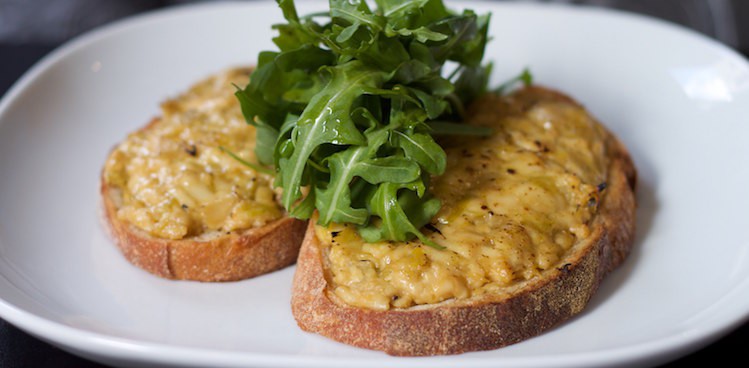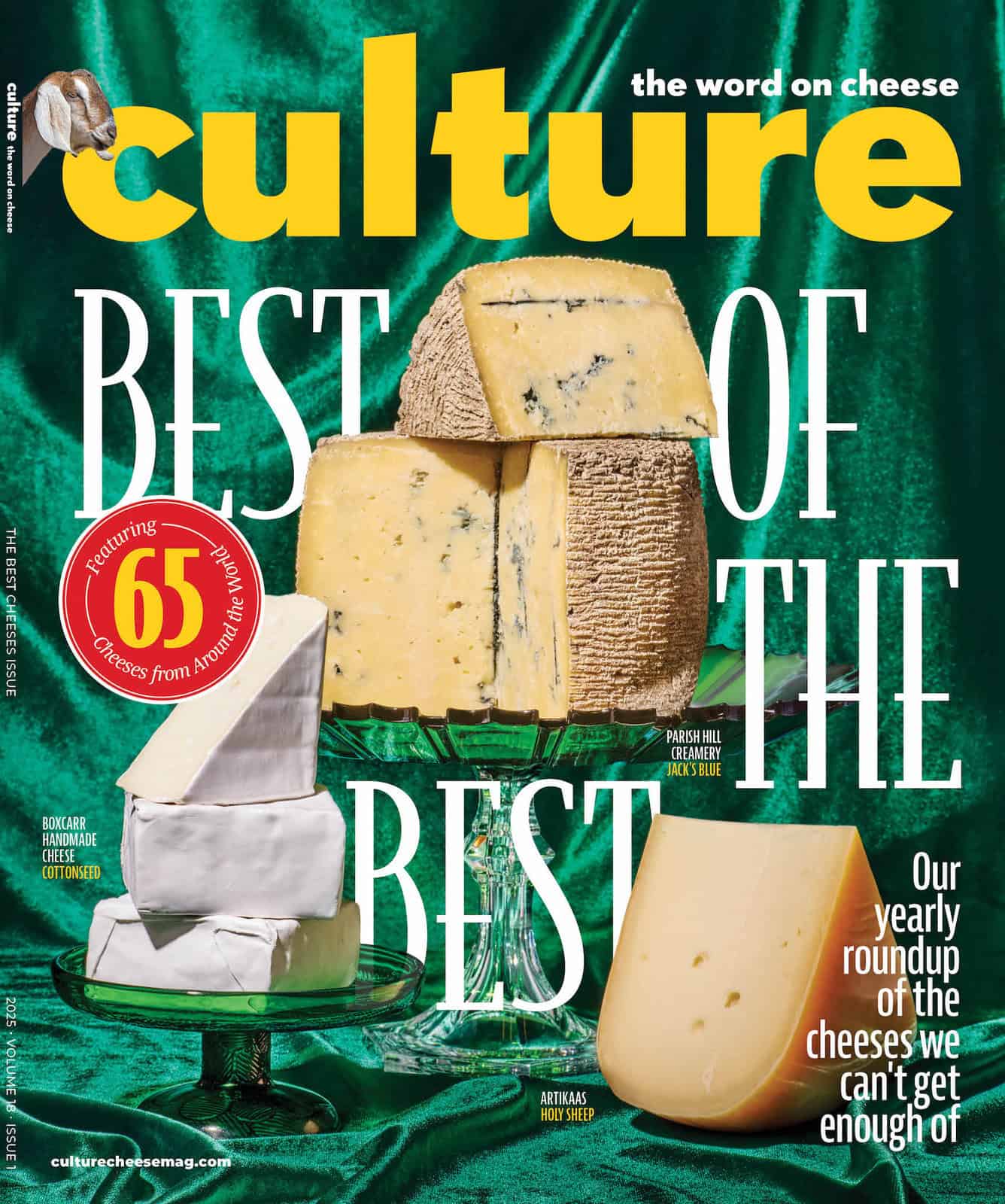
There are endless reasons to travel the world, but one always stands out: food. Get Cultured takes you on a journey through cheesy dishes from different cultures (heyo), exploring how they came to be, what makes them significant, where you can find the real deal, and how you can make your own.
Missed last week’s post on shakshuka? Check it out!
Welsh rarebit is a gooey dish of seasoned cheese sauce on toasted bread, common to Wales and its surroundings. Move over, fish and chips—there’s a cheesier pub food in town.
I don’t know about you, but when I first learned of the existence of Welsh rarebit, my first question was what in the world a “rarebit” was. When I looked the word up in the dictionary, I found that it was “a dish of melted and seasoned cheese on toast, sometimes with other ingredients,” which only served to tell me what I already knew. Hmmm…
Scrolling down further, I came upon the derivation of the word: “Late 18th century: alteration of rabbit in Welsh rabbit.” Ah-ha. We were getting somewhere.
But there is no rabbit in the dish! And so begins the several tales of how Welsh rarebit came to be.

No rabbits were harmed in the making of this dish. Kentish Plumber | CC
The first recorded use of the name “Welsh rarebit” appears in Francis Grose’s A Classical Dictionary of the Vulgar Tongue, published in 1785, while we can trace “Welsh rabbit” back to at least 1725. One of the more popular theories for how the dish came to be called the latter is that it arose from English condescension toward the less wealthy Welsh. The Welsh were so unsophisticated, impoverished, and inept, the British attitude is said to have been, that they couldn’t even catch a rabbit for dinner—game whose most fabled quality is its propensity for multiplying—so melted cheese sustained them instead. “Welsh,” then, was basically slang for “inferior.” Ouch.
The other ubiquitous explanation for the reason we called a rabbit-free dish by a rabbit-heavy name is still rather hard on the Welsh but mildly less aggressive: A popular stereotype of Welsh people revolved around the idea that they adored cheese—so much so that, given the choice between the sustenance of rabbit and the delicious umami bite of cheese, they’d choose the latter (a choice that I would make in a heartbeat, too). A 16th-century joke book went so far as to say that once, in Heaven, the Welsh were causing such a ruckus that God asked St. Peter to give ’em the boot. St. Peter’s solution was to stand outside the gates and shout “Caws pobi!” which means “toasted cheese” in Welsh, and all the Welsh Heaven-dwellers ran out to get their share of the goodies, getting locked out in the process (again, a choice I’d probably also make).
No matter the origin, cheese on toast, which is what Welsh rarebit is at its core, has been widely consumed for centuries. The name is thought to have morphed into “rarebit” later on in an effort to take some of the anti-Welsh sentiment out of the dish as well as make it less confusing to those (entirely justified) people thinking that they were ordering rabbit.
A basic Welsh rarebit consists of a sauce made of melted cheese, milk or cream, beer, and seasoning all poured over bread and toasted to bubbling, slightly browned perfection. The seasoning can vary depending on preferences, but some classic additions are mustard, paprika, and cayenne. Like the croque monsieur, it’s not uncommon to add a poached egg to the top of a Welsh rarebit; the resulting variation is called a Buck rarebit.

A beautiful Buck rarebit. Jeremy Keith | CC
While many restaurants nowadays serve a “fancy” version of the dish, traditionally Welsh rarebit is pub food: It’s greasy, cheesy, and satisfying. Its ingredients are cheap and easy to find (in fact, Stouffers even makes a premade Welsh rarebit sauce). The cheesy toast’s charm isn’t in its status—it’s in its simplicity. As such, its popularity has expanded all across the UK, and it can be found just as easily in London as in Swansea.
For a good Welsh rarebit in Wales, a top-notch option is Madame Fromage in Cardiff, but, of course, walking into most any pub will also yield delicious results. Stateside, New York’s Chip Shop serves Welsh rarebit—among other British pub fare—in a punk-rock setting.
And for a rarebit that you can stay in your pajamas to eat, it’s probably best to avoid the prepackaged sauces and make your own.
Feature Photo Credit: Tristan Kenney | CC




